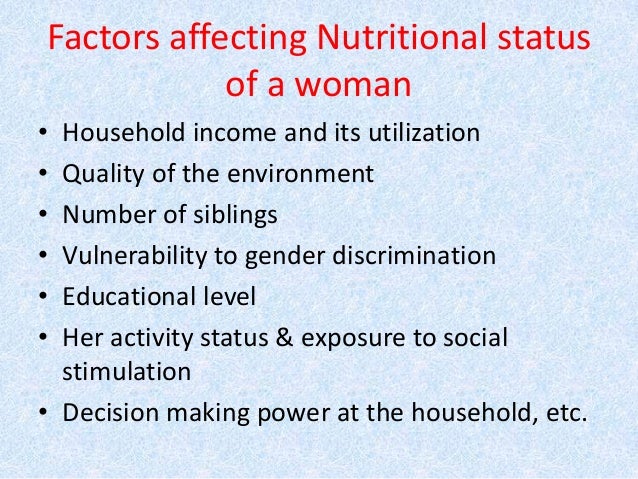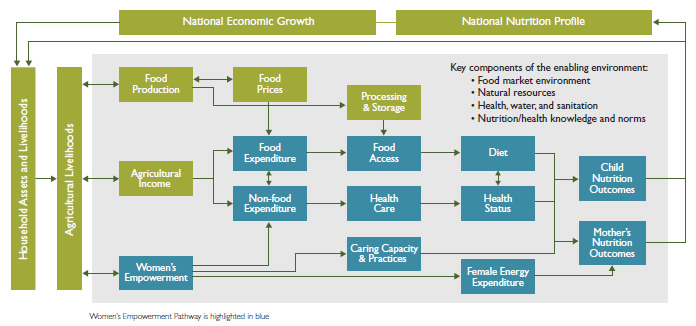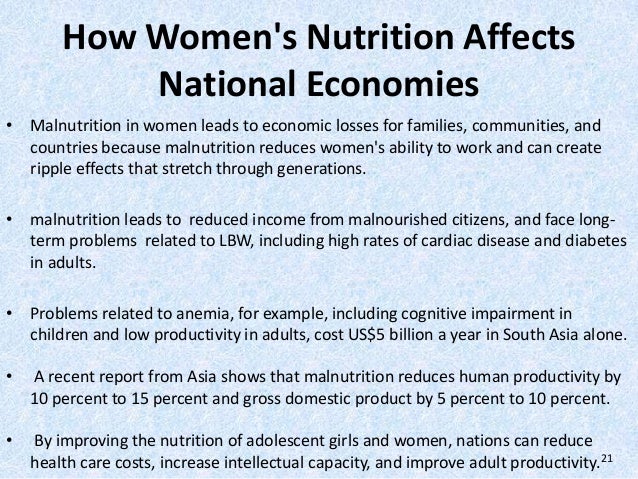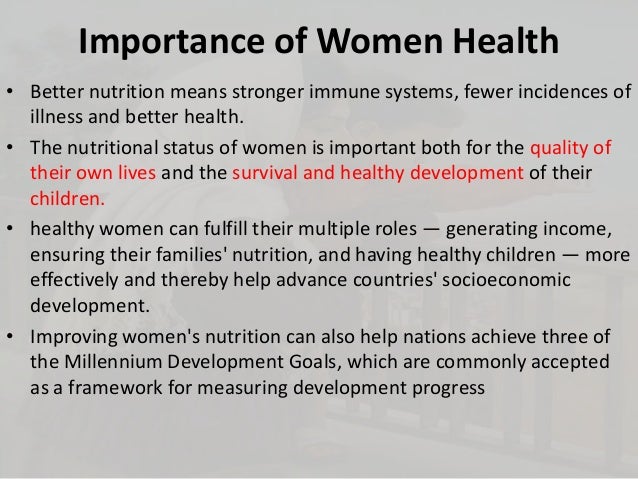EMPOWERMENT OF WOMEN: NUTRITION AND HEALTH-RELATED
Relevance:
Sociology:
-
Emerging issues: ageing, sex ratios, child and infant mortality, reproductive health.
-
Poverty, deprivation and inequalities.
G.S paper I: Society and social issues: Women Issues
Introduction
Women empowerment is important not only from the perspective of social justice and equality but also as a means for achieving the various Sustainable Development Goals (SDGs) including poverty reduction as well as improving nutrition, health and education of the people at large.
- Government has accorded top-most priority to tackle malnutrition among women and is making conscientious efforts to address the issue.
- This article emphasises mainly on nutrition and health-related empowerment of women at the family/household-level.
Women’s role in health and nutrition:
- Research indicates that women (as mothers/primary caretakers) are likely to influence health and nutrition outcomes of their families, especially the children. Since women are often the primary caregivers, they can influence their children’s nutrition indirectly through their own nutrition/health status as well as directly through their childcare practices.
- Researches indicate that various measures of maternal autonomy favourably correlate with optimum infant feeding practices and child-growth outcomes. Further, it has also been reported that maternal autonomy is positively associated with a child’s nutritional status, especially for children aged less than three years.
- On the contrary, the disempowered women are more likely to suffer time constraints, poor mental health, and negligible control over household- resources, inferiority complex and inadequate access to information/utilisation of healthcare services.

- Therefore, Women empowerment is crucial for improving nutrition and health-related outcomes of the family.
- Women empowerment is increasingly being viewed as a significantly important strategy in reducing maternal and child under-nutrition, which continues to be one of the major health burdens in low- and middle-income nations.
Nutritional and health status of women:
- On the nutrition and health front, data from National Family Health Survey-4 (NFHS-4; 2015–16) indicates that 22.9 per cent of the women (15–49 years) are underweight (BMI <18.5 kg/m2) and 53.1 per cent (15–49 years) are anaemic and only 21 per cent of the pregnant women had complete antenatal care.
As per the 2015–17 Sample Registration System (SRS) bulletin, the Maternal Mortality Rate (MMR) is 122 per 1,00,000 live births. Further, the Infant Mortality Rate (IMR) is 41 indicating that out of every 1000 live births, 41 infants die before attaining the age of 12 months; and the Under-Five Mortality Rate (U5MR) is 50 deaths per 1000 live births. The above indices are highly dependent on the mother’s nutrition and health status.

Challenges:
- Women are at an elevated risk of nutritional deficiencies during all stages of life cycle- right from Antenatal/Postnatal stage (for healthy foetal growth) to the needs of girl child, adolescent girls to post-menopausal/ elderly women.
- Unequal power relations at the household-level render women more susceptible to food insecurity than men. In any crisis situation or when food prices soar, women/girls are often the ‘shock absorbers’ by consuming less nutritious food in order to support their families.
- Gender discrimination hinders women’s access to healthcare due to various reasons like limited financial resources, restricted mobility, etc.
- Additional burdens imposed by gender disparities within the household/community limit their ability to remain healthy due to burdens like: prolonged household work, unsafe work environments, gender-based violence, inadequate mechanisms for prevention and protection of their rights.
Governmental schemes:

- Several schemes and programmes with direct/indirect interventions for addressing women’s health and nutrition-related issues are being implemented across the country.
- Janani Suraksha Yojana (JSY): A safe motherhood intervention under the National Health Mission (NHM) for curbing maternal and neonatal mortality by promoting institutional deliveries especially among the pregnant women belonging to weaker socio-economic strata (SC, ST, BPL households).
- National Health Mission (NHM): A flagship programme of the Ministry of Health and Family Welfare, NHM addresses malnutrition among women. Its components include: Anaemia Mukt Bharat; organization of Village Health and Nutrition Days as well as Sanitation and Nutrition Days (for providing maternal and child health services along with awareness generation on maternal and child care); Iron and Folic Acid (IFA) supplementation; calcium supplementation and promotion of iodized salt consumption.
- Anganwadi Services Scheme under the Integrated Child Development Scheme (ICDS) aims to improve the nutrition/ health status of pregnant women and nursing mothers, thereby lowering the incidence of mortality, morbidity and malnutrition among them. The beneficiaries are provided supplementary nutrition, nutrition and health education, immunisation, health check-up and referral services—all of which collectively help in uplifting their nutrition and health status.
- Pradhan Mantri Matru Vandana Yojana (PMMVY)/ Maternity Benefit Programme: Pregnant women and nursing mothers receive a cash benefit of Rs. 5,000/- in three instalments, on fulfilling the respective conditionalities: early registration of pregnancy, ante-natal check-up, child-birth registration and completion of first cycle of vaccination. The eligible beneficiaries also receive cash incentives under the Janani Suraksha Yojana (JSY). Hence, on an average, a woman gets Rs. 6,000/- for her first living child-birth.
- Scheme for Adolescent Girls (SAG) provides services to out-of-school adolescent girls (11–14 years) for their self-development and empowerment; improving nutritional and health status; promoting awareness regarding health, hygiene and nutrition; giving support to out-of-school adolescent girls for successfully transitioning back to formal schooling or bridge learning/skill training and upgrading their home-based life skills
- POSHAN Abhiyaan aims to improve the nutritional status of adolescent girls, pregnant women and nursing mothers in a time-bound manner. Educated, well-nourished and healthy girl child in the times to come will grow into well- nourished adolescent girls and later they will become healthy women and mothers who in turn are expected to bear well-nourished and healthy children. This can help in perpetuating an inter-generational cycle of healthy progeny.
Conclusion:

- Women empowerment in terms of employment activities and decision-making regarding household issues are the most evident factors that can affect the nutrition and health status of their families.
- Women should be empowered enough to consume/provide nutritionally wholesome meals themselves and their family members and they should be able to inculcate healthy dietary habits in their children right from younger ages.
- There is the need for Nutrition education to encourage the consumption of nutritious, safe and healthy diets.
- Empowering women is not only essential for achieving the well-being of family members including children but also for addressing developmental issues of the nation.
- A well-nourished, healthy and empowered woman is not only an asset to the family but to the society and the nation as a whole.


